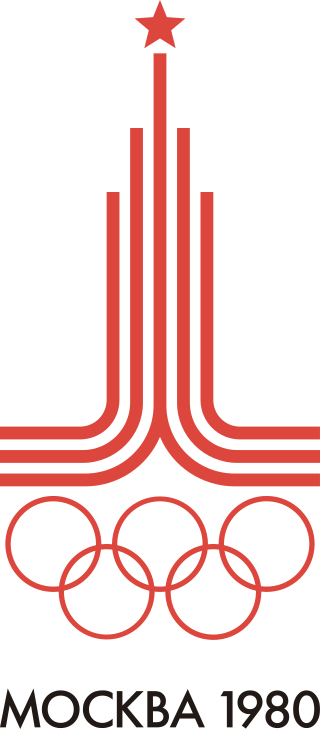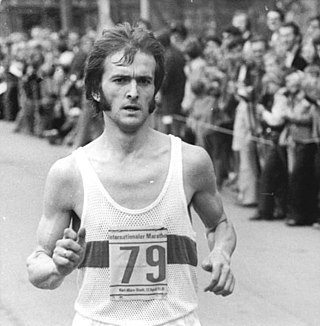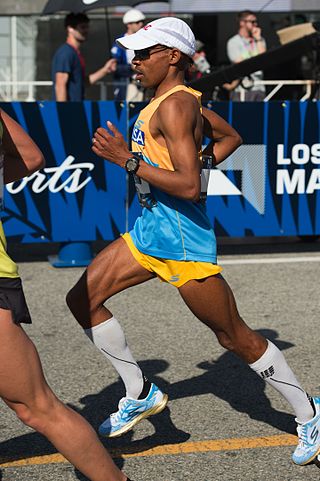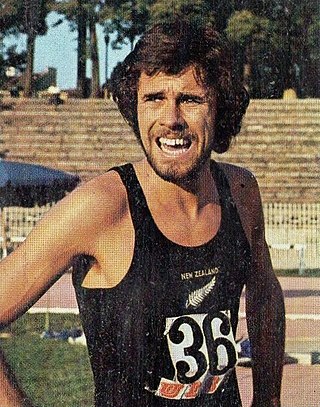
The Summer Olympic Games, also known as the Summer Olympics or the Games of the Olympiad, is a major international multi-sport event normally held once every four years. The inaugural Games took place in 1896 in Athens, Greece, and the most recent was held in 2024 in Paris, France. This was the first international multi-sport event of its kind, organized by the International Olympic Committee (IOC) founded by Pierre de Coubertin. The tradition of awarding medals began in 1904; in each Olympic event, gold medals are awarded for first place, silver medals for second place, and bronze medals for third place. The Winter Olympic Games were created out of the success of the Summer Olympic Games, which are regarded as the largest and most prestigious multi-sport international event in the world.

The 1976 Summer Olympics, officially known as the Games of the XXI Olympiad and officially branded as Montreal 1976, were an international multi-sport event held from July 17 to August 1, 1976, in Montreal, Quebec, Canada. Montreal was awarded the rights to the 1976 Games at the 69th IOC Session in Amsterdam on May 12, 1970, over the bids of Moscow and Los Angeles. It is the only Summer Olympic Games to be held in Canada. Toronto hosted the 1976 Summer Paralympics the same year as the Montreal Olympics, also the only Summer Paralympics to be held in Canada. Calgary and Vancouver later hosted the Winter Olympic Games in 1988 and 2010, respectively. This was the first of two consecutive Olympic games held in North America, followed by the 1980 Winter Olympics in Lake Placid.

The 1984 Summer Olympics were an international multi-sport event held from July 28 to August 12, 1984, in Los Angeles, California, United States. It marked the second time that Los Angeles had hosted the Games, the first being in 1932. This was the first of two consecutive Olympic Games to be held in North America with Calgary, Alberta, Canada hosting the 1988 Winter Olympics. California was the home state of the incumbent U.S. president Ronald Reagan, who officially opened the Games. These were the first Summer Olympic Games under the IOC presidency of Juan Antonio Samaranch.

The 1980 Summer Olympics, officially known as the Games of the XXII Olympiad and officially branded as Moscow 1980, were an international multi-sport event held from 19 July to 3 August 1980 in Moscow, Soviet Union, in present-day Russia. The games were the first to be staged in an Eastern Bloc country, as well as the first Olympic Games and only Summer Olympics to be held in a Slavic language-speaking country. They were also the only Summer Olympic Games to be held in a self-proclaimed communist country until the 2008 Summer Olympics held in China. These were the final Olympic Games under the IOC Presidency of Michael Morris, 3rd Baron Killanin before he was succeeded by Juan Antonio Samaranch shortly afterward.

Alberto Salazar is an American former track coach and long-distance runner. Born in Cuba, Salazar immigrated to the United States as a child with his family, living in Connecticut and then in Wayland, Massachusetts, where Salazar competed in track and field in high school. Salazar won the New York City Marathon three times in the early 1980s, and won the 1982 Boston Marathon in a race known as the "Duel in the Sun". He set American track records for 5,000 m and 10,000 m in 1982. Salazar was later the head coach of the Nike Oregon Project. He won the IAAF Coaching Achievement Award in 2013.

Waldemar Cierpinski is a former East German athlete and two-time Olympic champion in the marathon.

Mebrahtom "Meb" Keflezighi is a retired American long distance runner. He is the 2004 Olympic silver medalist in the marathon and finished in fourth place in the 2012 Summer Olympics. He won the 2009 New York City Marathon on November 1, 2009, and the 2014 Boston Marathon on April 21, 2014, becoming the first American man to win each race since 1982 and 1983, respectively. Keflezighi is a graduate of UCLA, where he won four NCAA championships competing for the UCLA Bruins track and field team. He came in fourth in the 2014 New York City Marathon on November 2, 2014, eighth in the 2015 Boston Marathon on April 20, 2015, and second in the 2016 U.S. Olympic Team Trials to qualify for the 2016 Summer Olympics.

Theodorus Jacobus Leonardus "Dick" Quax was a Dutch-born New Zealand runner, one-time world record holder in the 5000 metres, and local-body politician.

Rodney Phillip Dixon is a former New Zealand middle- to long-distance runner. He won the bronze medal in the 1500 metres at the 1972 Olympics in Munich, and in 1983 won the New York City Marathon.

Pieter "Piet" Kleine is a former speed skater from the Netherlands who specialized in the longer distances.

Ryan Hall is a retired American long-distance runner who holds the U.S. record in the half marathon. With his half marathon record time (59:43), he became the first U.S. runner to break the one-hour barrier in the event. He is also the only American to run a sub-2:05 marathon. However, this time is not eligible to be a record due to the course being point-to-point and a net-downhill course. Hall won the marathon at the 2008 United States Olympic trials and placed tenth in the Olympic marathon in Beijing.

Arthur Barry Magee is a retired New Zealand long-distance runner. He won a bronze medal in the marathon at the 1960 Olympics and in the 10,000 m event placed 26th at the 1960 and 23rd at the 1964 games.
Peter Dickson Pfitzinger is an American former distance runner, who later became an author, exercise physiologist and sports administrator.

The Central African Republic competed at the 1984 Summer Olympics in Los Angeles, United States. It had been 16 years since the previous appearance of the nation at the Summer Olympics, when it made its debut at the 1968 Games in Mexico City, Mexico. The Central African Republic was represented by three athletes; marathon runner Adolphe Ambowodé and two boxers, Dieudonné Kossi and Antoine Longoudé. There were no medals won by the trio.

Veikko Leo Karvonen was a Finnish long-distance runner who mainly competed in the marathon. He won the bronze medal in the marathon at the 1956 Summer Olympics. At the 1954 European Championships he won the gold medal in the marathon and the following year won the Boston Marathon.
Benji Durden is a Boulder, Colorado based runner and former running coach who came to prominence as a distance runner in the early 1980s, at the height of the American running boom. Durden was a member of the 1980 Summer Olympics United States marathon team, placing second against what to that point was perhaps the deepest field of American marathoners ever assembled. With a personal record of 2:09:57, Durden recorded 25 sub-2:20 marathons in less than a decade. He ranked among the top ten US marathoners six straight years, reaching seventh in the world in 1982.

The men's marathon at the 2012 Olympic Games in London took place on the Olympic marathon street course on 12 August, the final day of the Games. One hundred and five athletes from 67 nations competed. The event was won by Stephen Kiprotich of Uganda, the nation's first Olympic men's marathon victory and the nation's only medal in 2012. Kenya earned its fourth and fifth medals in five Games, with Abel Kirui's silver and Wilson Kipsang's bronze.

James Oram is a New Zealand former cyclist, who competed as a professional from 2012 to 2023. His career took him from the American development team Bontrager–Livestrong, to British UCI continental team ONE Pro Cycling, before a year with Chinese Mitchelton–BikeExchange and finally riding for New Zealand Bolton Equities Black Spoke. He achieved one professional win in his career, the national road race championship in 2023.

Alicia Hoskin is a New Zealand flatwater canoeist. At the 2024 Summer Olympics, she won two gold medals, in the K‑2 500 metres and the K‑4 500 metres events.
















